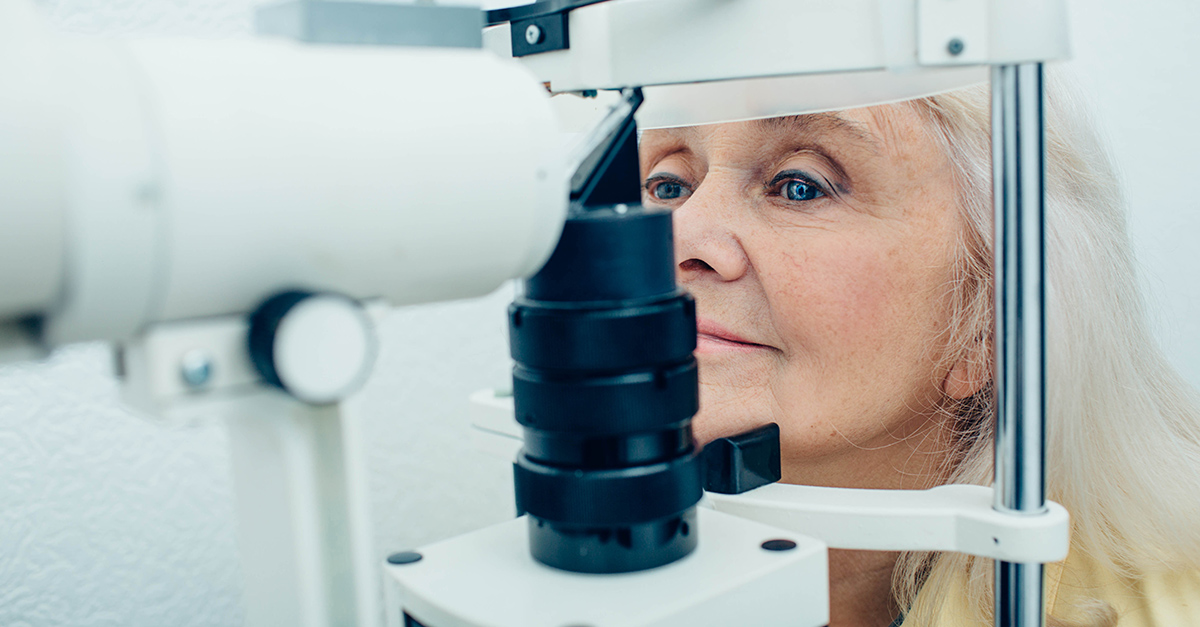An Overview of Diabetic Eye Disease

Diabetic eye disease is a term used to describe the variety of eye problems that either result from diabetes or are severely worsened by diabetes. These conditions include glaucoma, diabetic retinopathy, cataract, and more. The key to preventing vision loss from diabetes is to ensure you are getting your annual eye exams and taking care of your diabetes to the best of your ability. In this article, an ophthalmologist in Tampa covers a few of the conditions under the umbrella of diabetic eye disease and their methods of prevention and/or treatment.
Related: When Should I See an Ophthalmologist in Tampa for My Vision?
Glaucoma
Glaucoma is a group of eye diseases that may result in impaired vision and eventual blindness as a result of the buildup of pressure inside the eye and damage to the optic nerve. Symptoms and methods of treatment vary depending on which type of glaucoma you have; however, nearly all vision loss due to glaucoma can be prevented with early detection and treatment of the disease.
People with diabetes are twice as likely to develop glaucoma as well as a rare condition known as neovascular glaucoma. Neovascular glaucoma causes new blood vessels to form on the iris, thus blocking the normal flow of fluid and causing buildup of pressure inside your eye. The primary form of treatment involves the use of a laser to reduce the number of blood vessels in the back of the eye, but an anti-VEGF injection can also be used to quickly reduce pressure.
Related: Treating Glaucoma With Laser Eye Surgery
Diabetic Retinopathy
The retina is the inner lining at the back of each eyeball that contains nerves sensitive to light. These nerves sense light and trigger impulses that pass via the optic nerve to the brain, where they are then transformed into an image. People with diabetes are at increased risk for diabetic retinopathy, in which the small blood vessels in the retina leak, swell, or close off completely. The longer you have diabetes, the more likely you are to develop diabetic retinopathy.
People with type 1 diabetes will rarely develop the condition before puberty, whereas those with type 2 diabetes may show signs of eye problems when they are diagnosed. In the early stages of diabetic retinopathy, or nonproliferative diabetic retinopathy, the blood vessels are likely to weaken, leak, or bulge into the retina. As the condition progresses, new blood vessels will grow on the surface of the retina in what’s known as proliferative diabetic retinopathy. The best method of treatment is to catch it within the early stages of the disease and do your best to control your blood sugar and blood pressure to slow the disease.
Cataract
Cataracts occur when the normally clear internal lens of your eye becomes clouded, resulting in symptoms such as blurred vision, sensitivity to light, and fading of colors. Anyone is susceptible to the formation of cataracts but those with diabetes develop cataracts at an earlier age due to buildup of deposits in the eyes from high glucose levels or excess blood sugar. You will also experience a worsening of your cataracts at a faster rate than someone without diabetes or high blood sugar levels. If you have diabetes and are finding that your cataracts interfere with your daily activities, such as driving or working outside, it is time to consider cataract treatment in Tampa.
At Florida Eye Center, we perform the state-of-the-art procedure of laser-assisted phacoemulsification surgery in which the cataract is removed and replaced with an artificial lens through a small incision. The entire procedure is performed in an outpatient setting in as little as 15 minutes, so you’ll notice an almost immediate improvement in visual quality. For more information on the treatment of cataracts, glaucoma, or other eye conditions at Florida Eye Center, contact us today.
To schedule a consultation with an ophthalmologist in Tampa at the Florida Eye Center, please request an appointment today.
Disclaimer: The contents of this website are for general educational purposes only. All content and media on the Florida Eye Center website does not constitute professional medical advice nor is the information intended to replace the services provided by the medical professionals at Florida Eye Center or other qualified medical professionals. If you believe you are having a medical emergency, call 911 immediately. The content, views, and opinions communicated on this website do not represent the views of Florida Eye Center. Reliance on any information provided by this website is solely at your own risk. Although this website contains links to other medical websites, this is strictly for informational purposes. Florida Eye Center is not responsible nor do they approve of the content featured on any third party linked websites referenced on this website.
Additional Resources
To request an appointment, please access the form below or contact our office at (813) 972-4444. While we do our best to accommodate your request, appointment requests made through our website are not guaranteed until confirmed by our office. If this is an emergency, please call 911.

